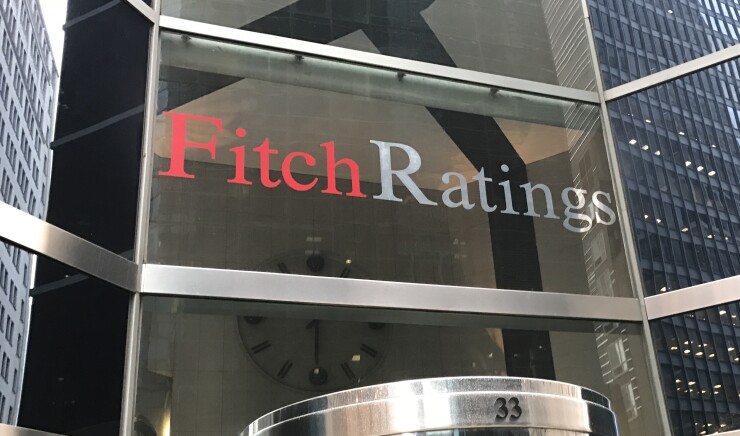The struggling Sacramento City Unified School District received Fitch Ratings downgrades for some bonds, but not others, based on whether or not the ratings agency had a legal opinion designating them “pledged special revenues” in a bankruptcy.
Fitch on Wednesday downgraded to BBB-plus from A-plus the issuer default rating and the school district’s Series 2007 general obligation bonds and Series 2011 GO and Series 2012 GO refunding bonds. It also downgraded to BBB from A Series 2014A lease revenue bonds that were issued by the district's Joint Powers Financing Authority.

The outlook on those bonds was also revised to negative from stable.
The districts series 2017E and series 2017C unlimited tax GO bonds ratings were affirmed at AAA with a stable outlook.
“The downgrade and outlook revision are triggered by significant deterioration in the district's financial position compared with prior expectations and Fitch's concern the district could face challenging expenditure control while it stabilizes its finances,” Fitch analysts wrote.
The Sacramento County Superintendent of Schools installed a fiscal advisor with veto power over spending after it disapproved the district’s budget in October. The budget carried a $30 million deficit. The state’s 10th largest school district has 43,000 students enrolled on 76 campuses.
In the absence of fiscal adjustments, the district could have a negative cash balance by November, Moody’s Investors Service analysts wrote in a Feb. 1 report.
Fitch began
Fitch assigned AAA underlying general obligation ratings to bonds issued by several California school districts in 2016. The higher underlying GO ratings reflect Fitch's opinion that the property tax revenues pledged to bond repayment would be considered pledged special revenues under the bankruptcy code.
The district's 2017E and 2017C unlimited tax GO bonds retain their AAA ratings based on a dedicated tax analysis without regard to the district's operations, Fitch analysts wrote.
The distinction between the triple-A ratings on the 2017E and 2017C GO bonds and the BBB-plus issuer default rating reflect Fitch's assessment, supported by legal opinions provided by district counsel, that the pledged revenues for repayment of the 2017E and 2017C GO bonds meet the definition of "pledged special revenues" under the U.S. Bankruptcy Code, and therefore bondholders are legally insulated from any operating risk of the district, analysts wrote.
Fitch was not provided legal opinions for the 2007, 2011, and 2012 bonds; analysts wrote, therefore, those bonds are rated at the district's issuer default rating.
Fitch’s actions follow a
Moody’s downgraded the school district’s ratings two notches to A2 from Aa3 on Feb. 1 and revised the outlook to negative from stable on $327 million in general obligation debt it rates.
S&P Global Ratings on Jan. 25 lowered its long-term rating on the school district four notches to BBB from A-plus and lowered the district's lease-revenue bonds five notches to junk-level BB-plus from A. S&P also placed the ratings on CreditWatch negative.





